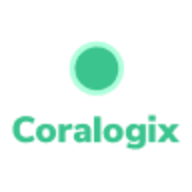

Splunk AppDynamics and Coralogix both compete in the logging and monitoring solutions market. AppDynamics appears to have the upper hand with its advanced application performance monitoring features, while Coralogix is preferred for its ease of setup and user experience.
Features: Splunk AppDynamics offers comprehensive transaction tracking, real-time monitoring, and diagnostic capabilities that are valuable for troubleshooting complex application issues. It provides an application flow map that helps visualize application interactions. Its ability to integrate detailed metrics, like JVM monitoring, enhances its performance insights. Coralogix, on the other hand, is praised for its straightforward and easy-to-use log analysis tools. It focuses on providing a seamless user experience and supports efficient data ingestion and query capabilities. Its simple setup process makes it accessible even to non-technical users.
Room for Improvement: Splunk AppDynamics could improve by simplifying its setup process and reducing resource demands. Enhancements in integration and cloud support are also needed. Coralogix users express a desire for more intuitive user interfaces and better Terraform providers. There is also interest in integrating advanced AI features for automated anomaly detection to enhance its value.
Ease of Deployment and Customer Service: Splunk AppDynamics supports various deployment environments, including on-premises and hybrid cloud, accompanied by comprehensive customer service, although some users note slow response times. Coralogix is primarily cloud-based, offering cost-effective deployment with efficient and responsive support, making it appealing for quick setups and user-friendly experiences.
Pricing and ROI: Splunk AppDynamics is often regarded as expensive but justifies the cost with enterprise-grade functionalities that offer a strong ROI through application visibility and performance improvements. Coralogix is more budget-friendly, providing a competitive price point without compromising essential logging features, which users find delivers satisfactory ROI for cost-conscious teams.
| Product | Market Share (%) |
|---|---|
| Splunk AppDynamics | 4.1% |
| Coralogix | 1.1% |
| Other | 94.8% |


| Company Size | Count |
|---|---|
| Small Business | 8 |
| Midsize Enterprise | 1 |
| Large Enterprise | 4 |
| Company Size | Count |
|---|---|
| Small Business | 55 |
| Midsize Enterprise | 36 |
| Large Enterprise | 188 |
Coralogix is a stateful streaming data platform that provides real-time insights and long-term trend analysis with no reliance on storage or indexing, solving the monitoring challenges of data growth in large-scale systems.
Ingest log, metric, and security data from any source for a single, centralized platform to monitor and alert on your applications. As data is ingested, Coralogix instantly narrows millions of events down to common patterns for deeper insights and faster troubleshooting. Proactive data storage optimization enables up to 70% savings on monitoring costs with better performance.
Splunk AppDynamics enhances application performance monitoring with advanced diagnostics and real-time insights, offering seamless end-to-end transaction tracking and infrastructure visibility.
AppDynamics provides critical tools for businesses to analyze application behavior and performance. Through innovative features like transaction snapshot analysis and adaptable dashboards, users can quickly identify and address issues, ensuring high levels of system uptime and efficiency. It is designed to support complex environments including Kubernetes and AWS, enhancing user experience by detecting performance issues early. Despite needing improvements in network monitoring and integration, it remains a robust option for tracking application health.
What are the key features of AppDynamics?In industries like financial services and e-commerce, AppDynamics facilitates performance tracking across distributed systems, optimizing infrastructure to meet consumer demands. It excels in environments needing precise transaction monitoring and is pivotal in delivering high value and satisfaction.
We monitor all Application Performance Monitoring (APM) and Observability reviews to prevent fraudulent reviews and keep review quality high. We do not post reviews by company employees or direct competitors. We validate each review for authenticity via cross-reference with LinkedIn, and personal follow-up with the reviewer when necessary.